Marxist Ecology
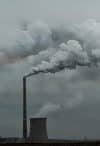
Human economies are complex biophysical systems. By exploring some fundamental concepts in physics, we can develop a better understanding of the ways that the energy-intensive activities of capitalism are changing humanity and the planet. | more…

Kohei Saito’s Karl Marx’s Ecosocialism: Capitalism, Nature, and the Unfinished Critique of Political Economy shows convincingly that Marx’s ideas about the interaction between humanity and nature did not arrive fully formed, but arose from his rigorous engagement with science and philosophy. His insights still offer unparalleled tools to understand capitalism’s current assault on the environment. | more…

To understand the present ecological crisis, it is necessary to dig much deeper into capitalism’s logic of expropriation, as first delineated by Marx during the Industrial Revolution. At the root of the problem is a spoliation of the natural environment—the expropriation of the earth itself. | more…
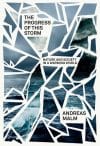
Ideas and theories can only play a limited part in tackling the climate crisis, but at least they should not act as obstacles to understanding and action. In his new book, Andreas Malm maps those obstacles and proposes a path through them. | more…
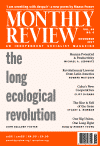
Over the last three decades, Monthly Review has stood out as a major source of ecosocialist analysis. This has been especially evident in recent months, with the publication by Monthly Review Press of three pathbreaking books: Kohei Saito, Karl Marx’s Ecosocialism: Capital, Nature, and the Unfinished Critique of Political Economy; Ian Angus, A Redder Shade of Green: Intersections of Science and Socialism; and Fred Magdoff and Chris Williams, Creating an Ecological Society: Toward a Revolutionary Transformation. | more…

From an ecological perspective, the Anthropocene marks the need for a more creative, constructive, and coevolutionary relation to the earth. In ecosocialist theory, this demands the reconstitution of society at large—over decades and centuries. However, given the threat to the earth as a place of human habitation this transformation requires immediate reversals in the regime of accumulation. | more…
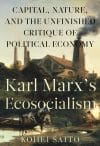
Karl Marx, author of what is perhaps the world’s most resounding and significant critique of bourgeois political economy, has frequently been described as a “Promethean.” According to critics, Marx held an inherent belief in the necessity of humans to dominate the natural world, in order to end material want and create a new world of fulfillment and abundance—a world where nature is mastered, not by anarchic capitalism, but by a planned socialist economy. Understandably, this perspective has come under sharp attack, not only from mainstream environmentalists but also from ecosocialists, many of whom reject Marx outright. | more…
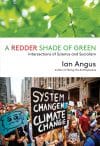
As the Anthropocene advances, people across the red-green political spectrum seek to understand and halt our deepening ecological crisis. Environmentalists, scientists, and ecosocialists share concerns about the misuse and overuse of natural resources, but often differ on explanations and solutions. Some blame environmental disasters on overpopulation. Others wonder if Darwin’s evolutionary theories disprove Marx’s revolutionary views, or if capitalist history contradicts Anthropocene science. Some ask if all this worry about climate change and the ecosystem might lead to a “catastrophism” that weakens efforts to heal the planet. | more…
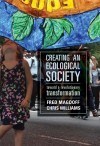
Sickened by the contamination of their water, their air, of the Earth itself, more and more people are coming to realize that it is capitalism that is, quite literally, killing them. It is now clearer than ever that capitalism is also degrading the Earth’s ability to support other forms of life. Capitalism’s imperative—to make profit at all costs and expand without end—is destabilizing Earth’s climate, while increasing human misery and inequality on a planetary scale. Already, hundreds of millions of people are facing poverty in the midst of untold wealth, perpetual war, growing racism, and gender oppression. The need to organize for social and environmental reforms has never been greater. But crucial as reforms are, they cannot solve our intertwined ecological and social crises. Creating an Ecological Society reveals an overwhelmingly simple truth: Fighting for reforms is vital, but revolution is essential. | more…

A Historical-Materialist Inquiry into the 'Human and Animal'
The anthropocentric tendency to view nature or the environment as everything that is not human obscures the productive processes that go on in “nature.” But non-human animals are also the purposeful producers of their own worlds: they too engage in their own species-specific objectifying activity that transforms what is, from their perspective, nature; they too build worlds in their own bodily image. | more…

The Forgotten Legacy of Carl Schorlemmer
Most accounts of Marx and Engels’s lives, if they mention Carl Schorlemmer (1834–92) at all, refer to the renowned chemist only as a friend, without acknowledging his influence on their studies of the natural sciences. It is time to restore this neglected figure to his rightful place in the Marxian—and Engelsian—tradition. | more…

For decades, academics have suggested that Engels downgraded and distorted Marx’s thought. Today we are at last seeing the return of Engels, whose work continues to inform the struggles and inspire the hopes that define our own time. | more…











